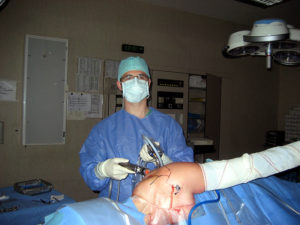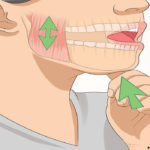
Shoulder surgery is a scary event for almost all patients. They experience swelling, pain, and they cannot move their arm as much as they could before. Your surgeon will give several postoperative instructions after shoulder procedures such as labral repairs and rotator cuff surgery. Instructions and restrictions given by the surgeon depend on the type of shoulder surgery. However, here are some general ideas that patients should consider before undergoing a shoulder surgery.
Inquire from the anesthesiologist about anesthesia before the operation
Most surgeries require patients to get the general anesthesia, which puts them to sleep. However, shoulder surgeries have several anesthesia options, and you should ask the anesthesiologist about the type to be used on you. One of the options is using a regional anesthesia, popularly known as a nerve block, which offers pain control before and after surgery for a variable period. The patient feels completely numb for six to 36 hours after the surgery. Regional anesthesia assists patients to go through the first hours or days after surgery even if they still require pain medications. You need to discuss these options and their side effects with the anesthesiologist on the day of operation.
Take narcotic pain medications
Most people who undergo shoulder surgery understand the pain. Therefore, they need narcotic pain medication for few days or even weeks to relieve the intense pain. You need to stay ahead of the pain during the early hours after surgery to ensure that you control the pain. For good results, it is advisable to take the medication before the last dose of the pain medication wears off or shortly before the anesthesia from the operation room. Patients who use the medications should be aware of vomiting or nausea effects. Patients can also take a dose before they retire to bed to help them sleep well.
Use cold or ice therapy devices to reduce swelling
Ice and other cold therapy forms are essential in reducing shoulder swelling after surgery, which causes postoperative pain. You need to stock cold therapy devices and large ice supply ready so that you use them once you get home after the procedure. My site advises on other devices to use such as bags of frozen peas and cold gel packs will also help you decrease swelling. However, orthopedic surgeons advise patients not to leave the cold treatments directly on their skin for a long time.
Be ready to use one arm
Most shoulder surgeries such as labral repairs and rotator cuff repairs require a certain period of immobilization for a quick recovery. Patients who undergo some surgeries such as subacromial decompressions don’t have to wear the sling all the time. However, you should avoid driving if your surgeon advises you to wear the sling throughout.
Have a friend or family member at home
It is crucial that you have a friend, your spouse or a family member at home to assist you around the house. You need help for just a few days as you recover. You need help to avoid pain in your shoulder and to enhance your recovery.
Surgeons can pursue reverse shoulder replacement depending on the condition of the patient. Cases that necessitate reverse shoulder replacement include severe shoulder arthritis and severe rotator cuff trauma. Your surgeon will advise on the most appropriate surgery.









